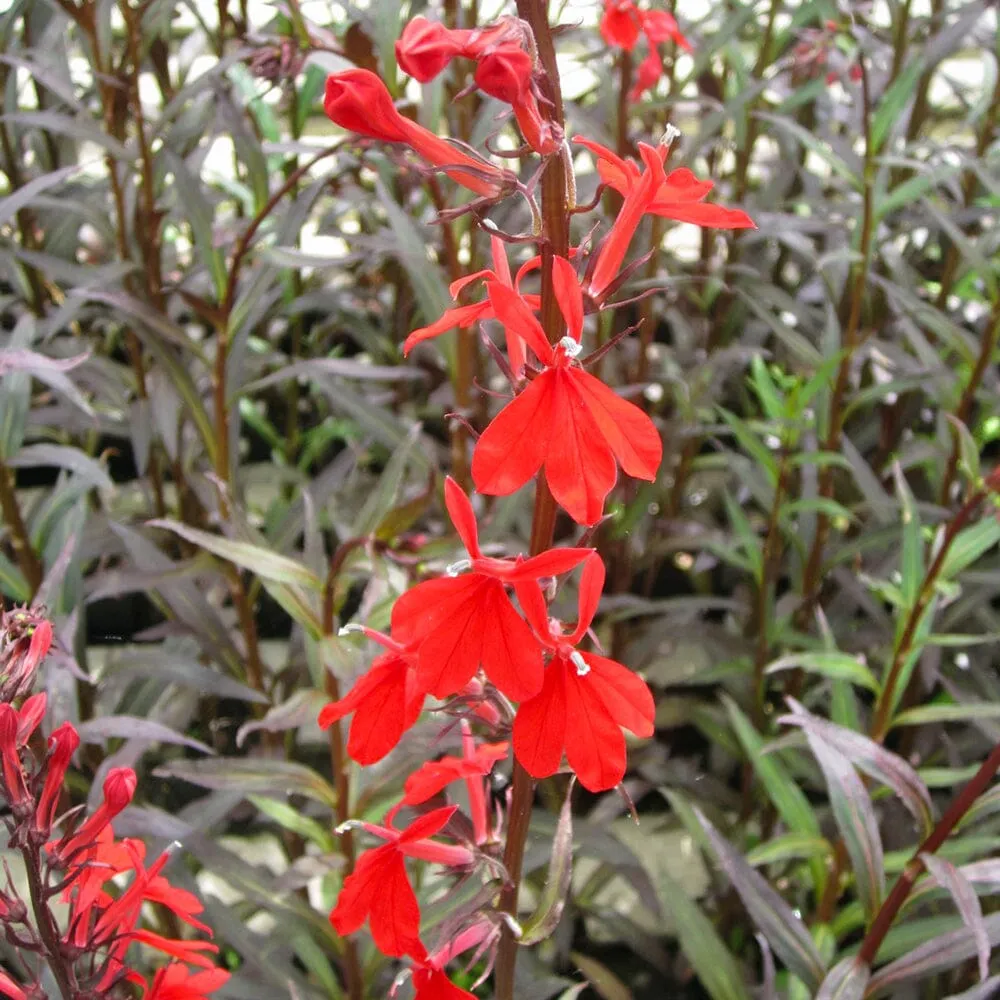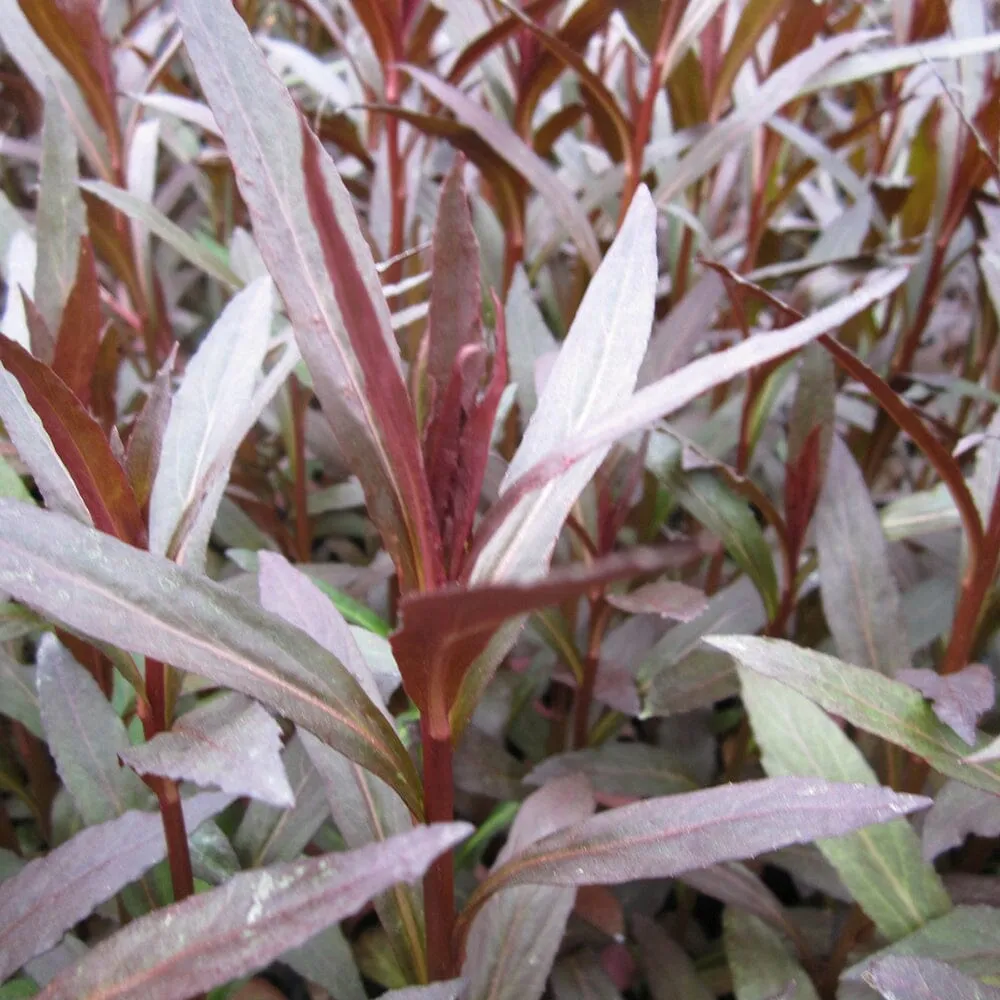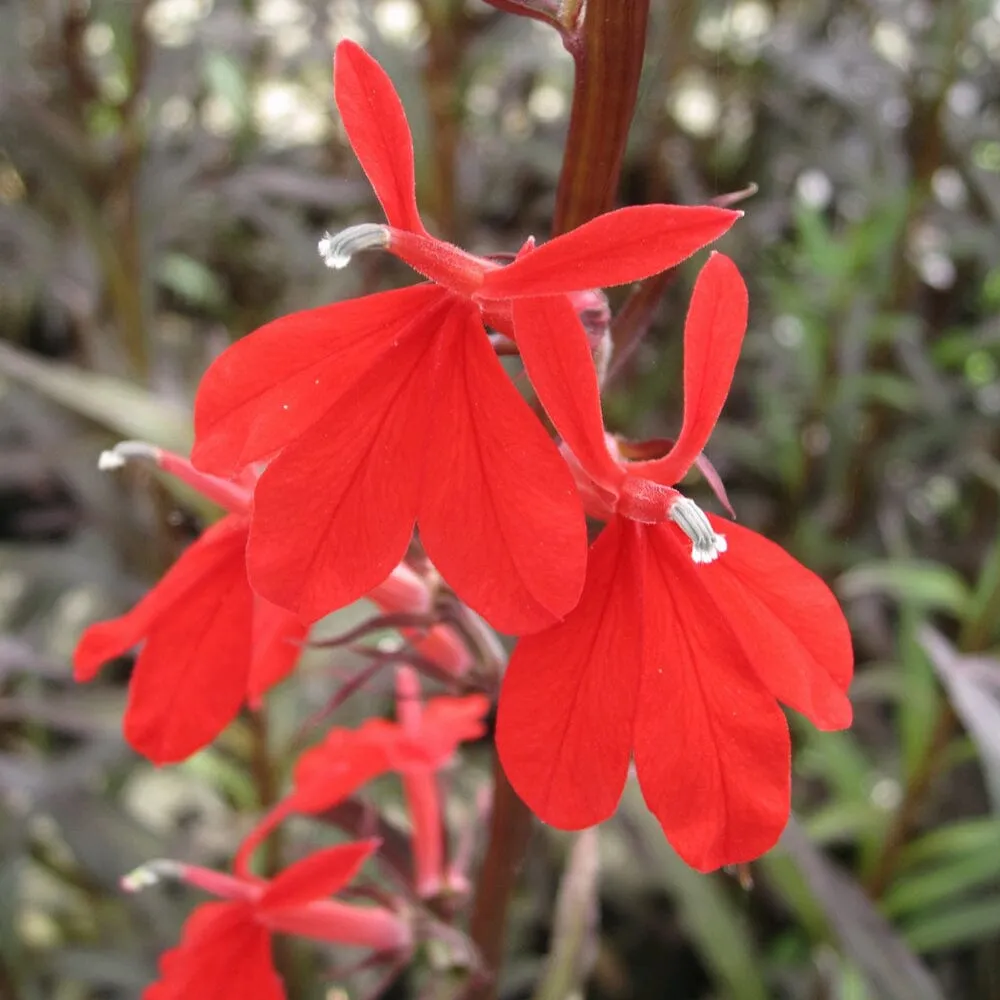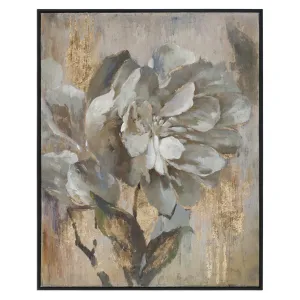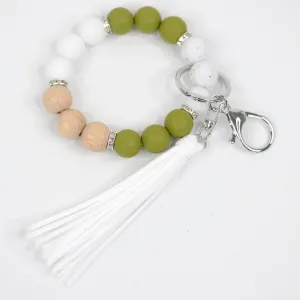Lobelia fulgens 'Queen Victoria,' commonly known as Queen Victoria Cardinal Flower, is a striking perennial plant known for its vibrant red foliage and tall spikes of scarlet flowers. It is a cultivar of Lobelia fulgens and adds a dramatic element to gardens and landscapes. Here's a detailed description and care guide for Lobelia fulgens 'Queen Victoria':
Description:
Lobelia fulgens 'Queen Victoria' features erect stems that can reach a height of 2 to 3 feet (60 to 90 cm). The most distinctive feature of this cultivar is its foliage. The leaves are lance-shaped, deeply serrated, and glossy, with a rich burgundy or bronze color. The intense red foliage serves as an excellent backdrop for the stunning flowers. In mid to late summer, tall spikes of tubular scarlet-red blooms emerge from the foliage, attracting hummingbirds and butterflies. The flowers create a bold contrast against the dark foliage, making it a focal point in garden beds, borders, or containers.
Care Guide:
Lighting: Lobelia fulgens 'Queen Victoria' thrives in partial shade to full sun. It prefers a location with at least 4 to 6 hours of direct sunlight per day. In hot climates, providing afternoon shade can help protect the plant from excessive heat and prevent the foliage from scorching. However, it can tolerate full sun if the soil is consistently moist.
Water: Lobelia fulgens 'Queen Victoria' prefers consistently moist soil conditions. It thrives in well-drained but moisture-retentive soil. Regular watering is essential to keep the soil evenly moist, especially during hot, dry periods. However, be cautious not to overwater, as excessive moisture can lead to root rot. Mulching around the base of the plant can help retain moisture and regulate soil temperature.
Soil: Lobelia fulgens 'Queen Victoria' prefers rich, moist, and well-draining soil. It can tolerate a range of soil types, including loam, clay, or sandy soil, as long as it retains moisture. Incorporating organic matter, such as compost or well-rotted manure, into the soil before planting can improve its fertility and moisture retention capabilities.
Temperature: Lobelia fulgens 'Queen Victoria' is hardy in USDA hardiness zones 7-10. It prefers moderate temperatures but can tolerate some heat and humidity. In cooler regions, it may require additional winter protection, such as mulching or bringing potted plants indoors.
Fertilizer: Lobelia fulgens 'Queen Victoria' benefits from regular fertilization to promote healthy growth and vibrant foliage. Apply a balanced, water-soluble fertilizer every four to six weeks during the growing season. Follow the manufacturer's instructions for dosage and application methods.
Maintenance: Lobelia fulgens 'Queen Victoria' requires regular maintenance to ensure optimal growth and appearance. Deadhead spent flowers to encourage continuous blooming and prevent self-seeding. Trim back any damaged or leggy stems to maintain a compact and tidy habit. In regions with harsh winters, cut back the plant to ground level in late fall or early spring.
Pests and Diseases: Lobelia fulgens 'Queen Victoria' is generally resistant to pests and diseases. However, it may occasionally attract aphids, slugs, or snails. Monitor the plant for any signs of pest damage and take appropriate measures if necessary. Providing adequate air circulation and avoiding overcrowding can help prevent the development of fungal diseases.
By following these care guidelines, you can enjoy the vibrant red foliage and stunning scarlet flowers of Lobelia fulgens 'Queen Victoria' in your garden. Adjust the care routine based on your specific growing conditions and monitor the plant for any signs of stress, pests, or diseases. With proper care, Lobelia fulgens 'Queen Victoria' will add a bold splash of color and visual interest to your outdoor spaces.




